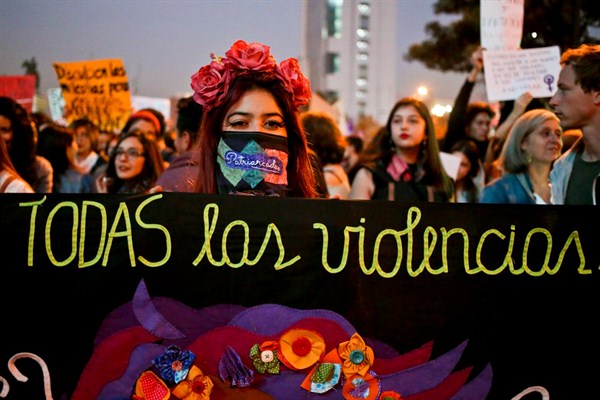Last week, thousands of women marched through Santiago, Chile, in a demonstration organized by university students to protest sexual harassment and violence against women on campus. The demonstration followed an even larger one the previous Friday protesting violence against women. In an email interview, Kirsten Sehnbruch, an associate researcher at the Universidad de Chile and the Centre for Social Conflict and Cohesion, and Patricio Espinoza, Atlantic Fellow for Social and Economic Equity at the London School of Economics’ International Inequalities Institute, discuss the current protests and how they fit into Chile’s broader student and feminist movements.
World Politics Review: What is driving the current protests against sexual violence in Chile’s universities? To what extent do they grow out of the Chilean student movement that mobilized for school reforms in the past, and to what extent do they represent something new?
Kirsten Sehnbruch and Patricio Espinoza: The recent protests were triggered by a case of sexual harassment that occurred in the Law Faculty of the University of Chile, to which the university authorities did not respond promptly or adequately. However, they also reflect a broader concern with the historical and generalized gender discrimination to which female students are subject in Chile, and for which universities have failed to establish appropriate and effective institutional responses. Beyond the specific case of the Law Faculty, the current movement describes itself more broadly as feminist, with the stated objective of eradicating sexual harassment and closing the gender pay gap, in addition to establishing equal academic opportunities for women and men.

